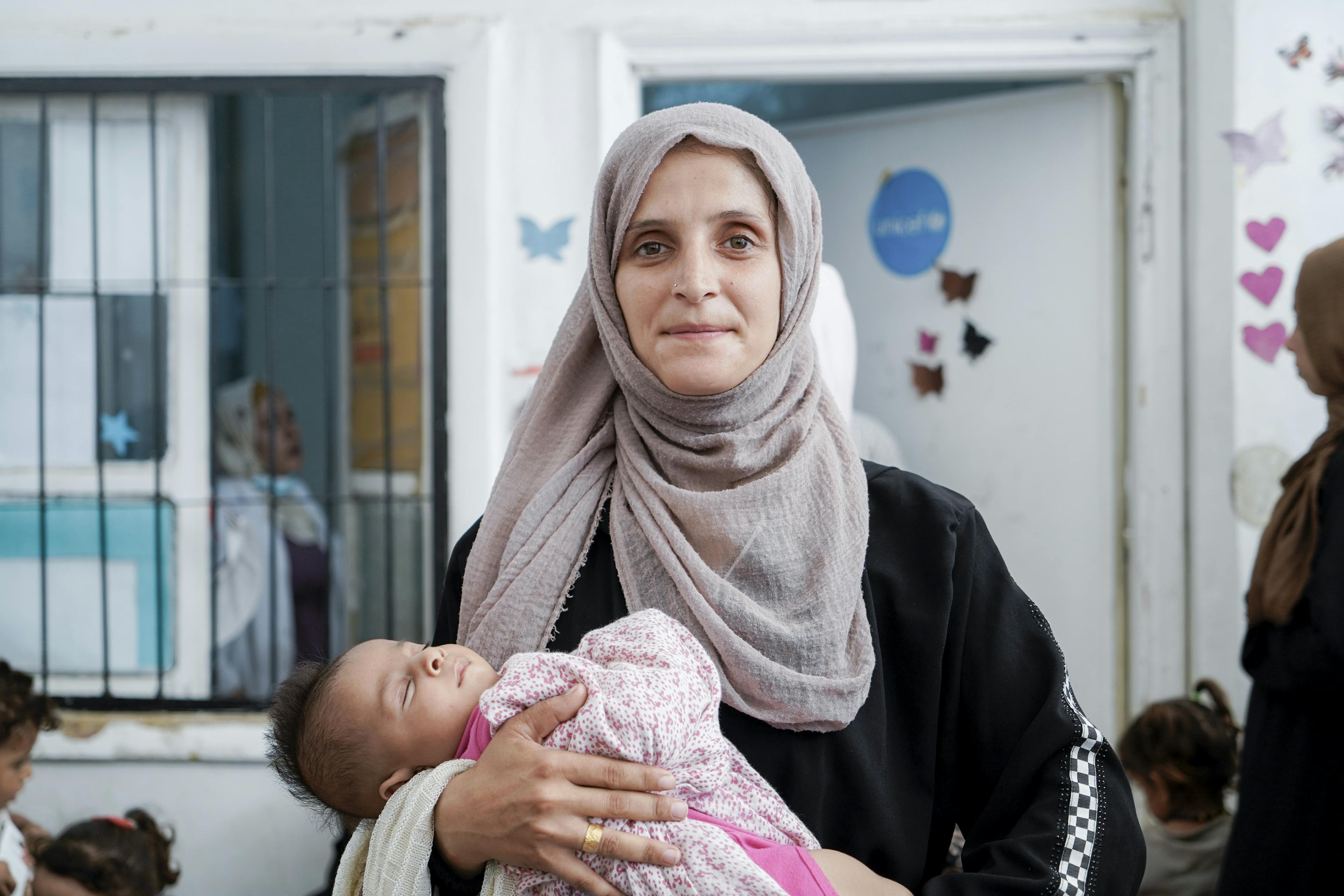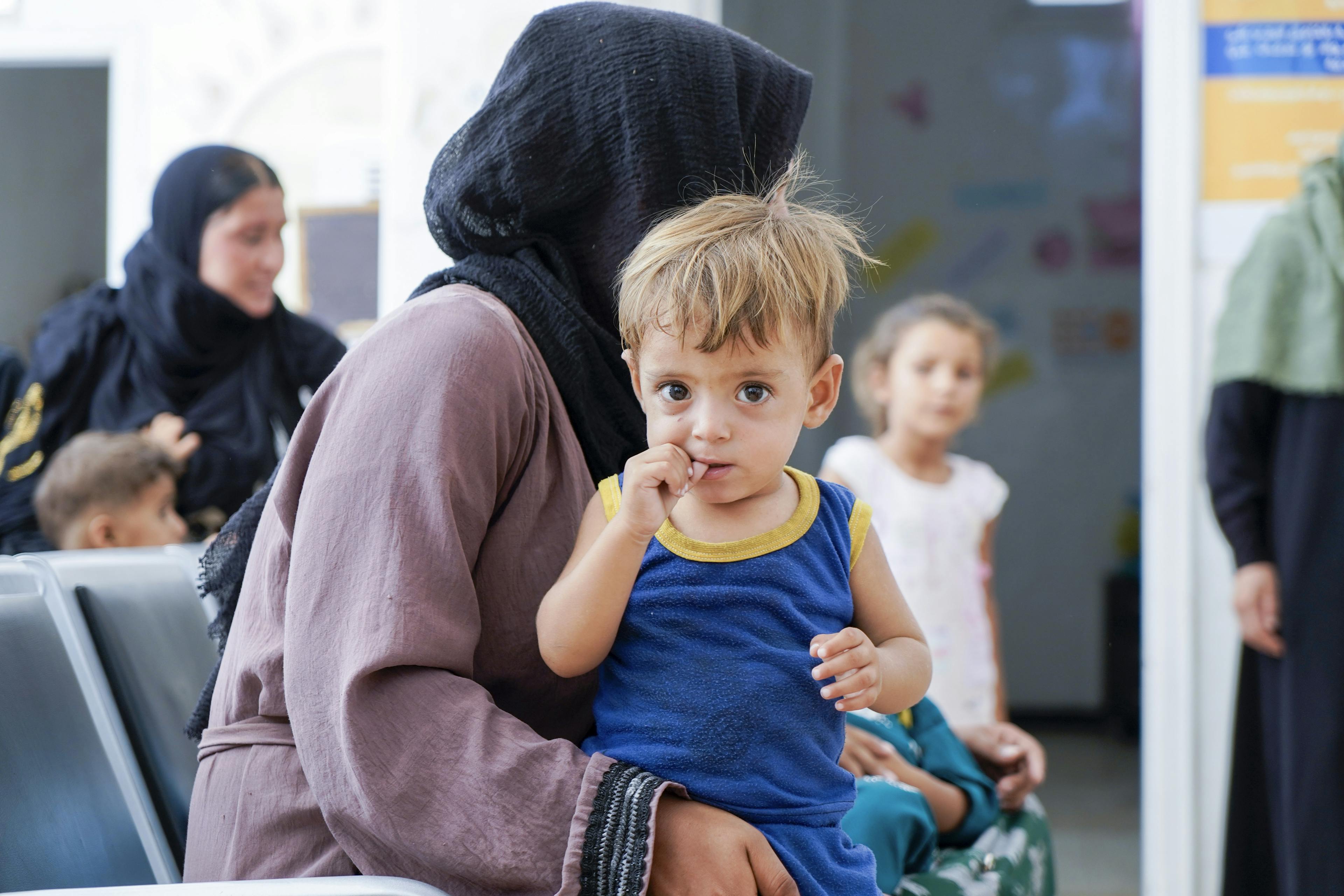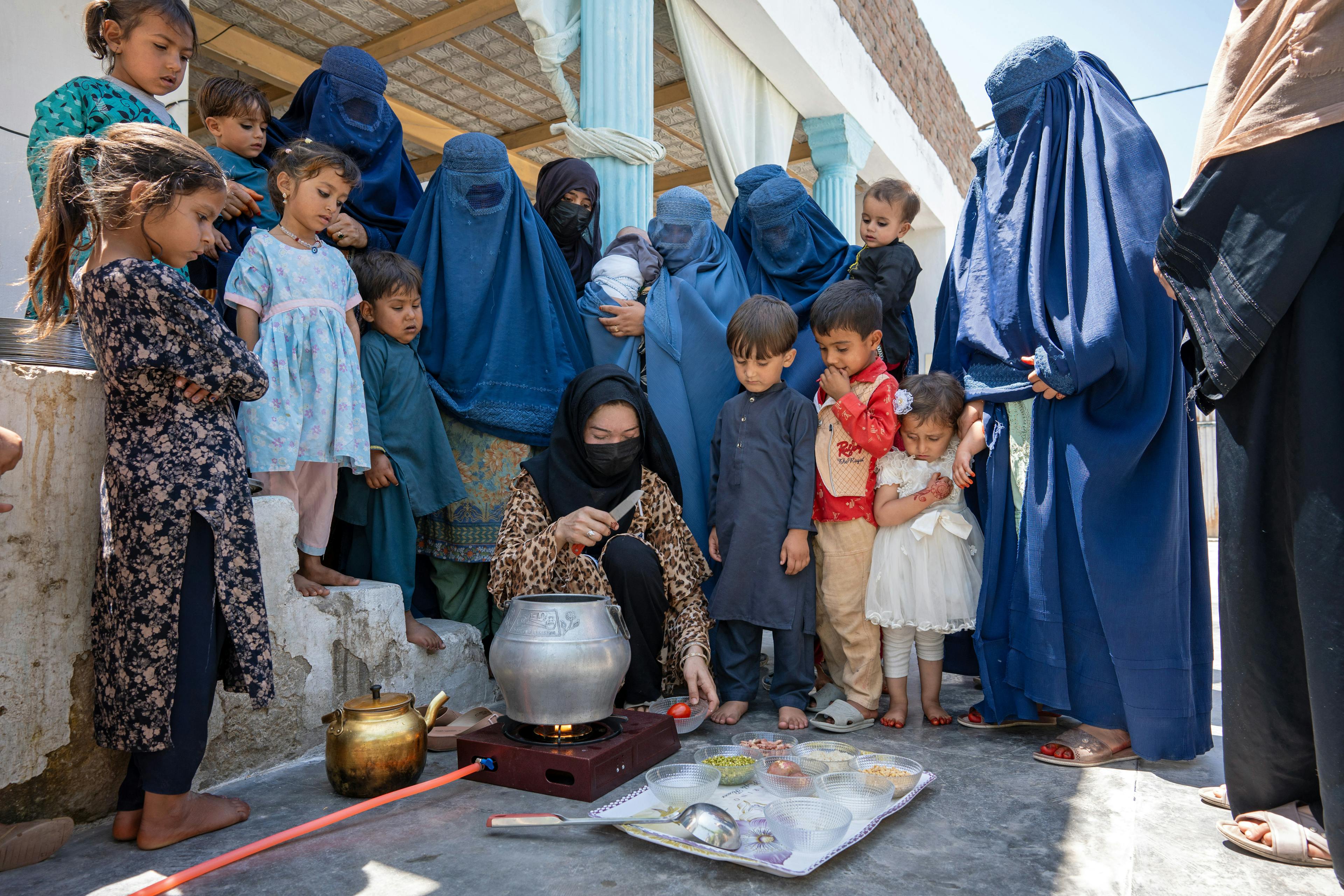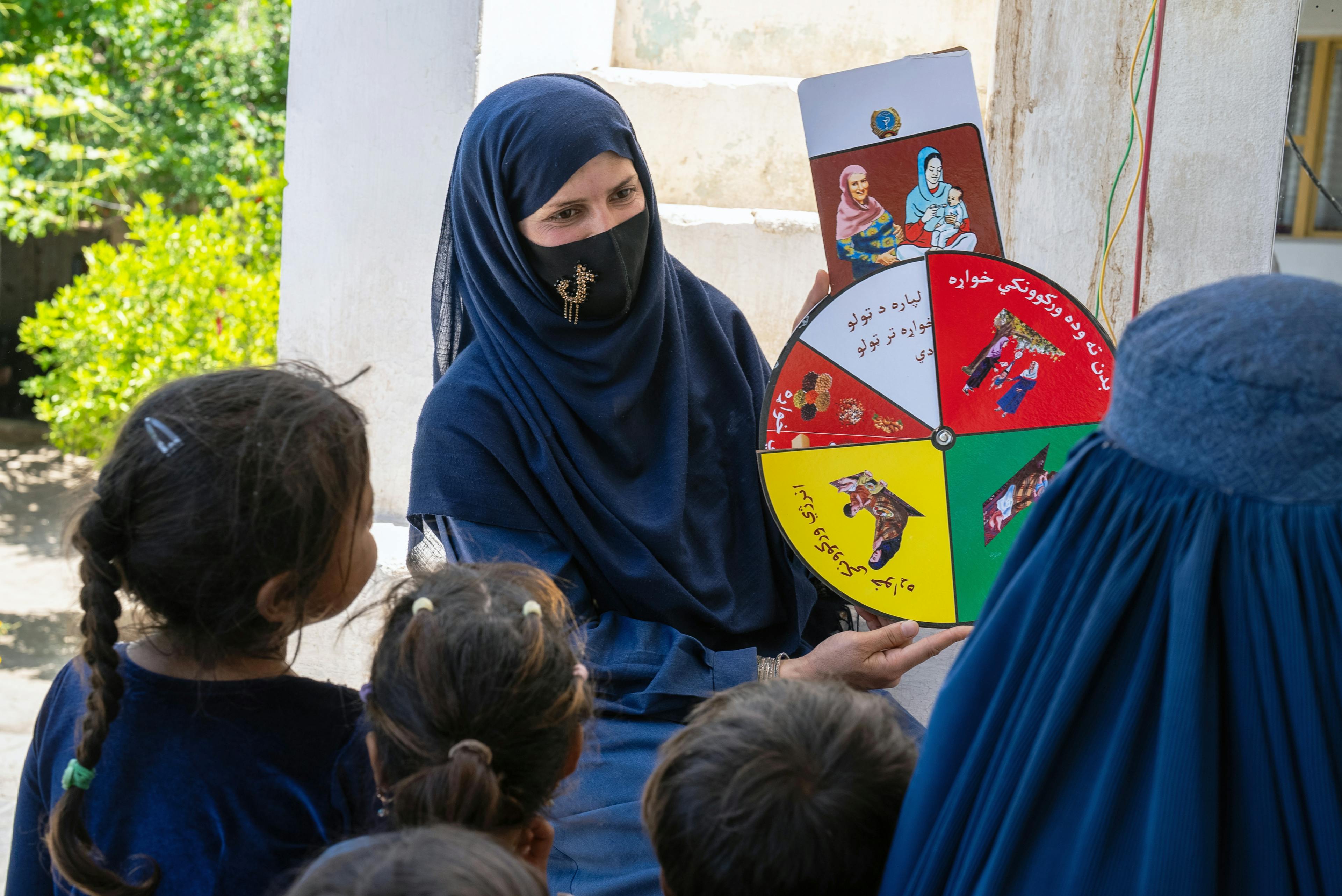
Solving world hunger... is UNICEF making an impact?
Home
Stories
Solving world hunger... is UNICEF making an impact?
One of the questions we’re asked about often is whether or not UNICEF is making a difference to solving world hunger? Access to food and water are just two fundamentals that humans need to live and where a lot of our energy in our global projects are focused. In keeping with the UN Convention of the Rights of the Child - no matter a child’s age, gender, ethnicity, hometown, economic status, or faith - these needs are not just key to kids’ and their communities’ survival, but are also universal.
And we get it... for decades people across the world have seen images and campaign drives to help solve this problem of providing food for kids in dire circumstances ... which begs the question, are the donations and appeals making an impact?

The short answer is yes, but like most things, it’s complicated
We’ve made massive progress over the last 77 years – especially with maternal and child nutrition rates - but ongoing and evolving factors like climate change, political and economic instability mean that we need to keep up the mahi to ensure we hit our goal of eradicating world hunger by 2030.
The reality is that in 2023 worldwide hunger rates were at 733 million people - equivalent to one in eleven people globally and one in five in Africa. This is according to the latest State of Food Security and Nutrition in the World (SOFI) report, published a few months ago by UNICEF and four other United Nations specialized agencies.
Whilst this number may seem daunting, when you break it down, breastfeeding and childhood stunting have seen the biggest improvement.
Exclusive breastfeeding rates of infants under 6 months old have now reached a record high of 48% globally. Related to this is an improvement in childhood stunting for kids under 5 years old, which has dropped by a third to 22% for the first time in two decades. According to UNICEF Executive Director Catherine Russell, this shows that “investments in maternal and child nutrition pay off.”
Other positive findings from the report are a) the population facing hunger remains stable in Asia at just over 8%—though still representing a significant challenge as the region is home to more than half of those facing hunger worldwide, and b) there’s been massive progress in Latin America with hunger reduced to around 6%.

And whilst these gains are significant, it’s important to remember the multifaceted dynamics of malnutrition and food insecurity. Throughout history, the world’s growing population has been met with extreme challenges in fulfilling the needs of those on the brink of starvation. From socio-political unrest, wars, financial crises, epidemics, industrialization, colonization and so many factors which continue to erode the access of millions to adequate nutrition. In recent decades, climate change has super-charged this and together with these other factors has put a literal spanner in the work to solving world hunger.
UNICEF’s programs around the world deal with these challenges daily. Their aim? To make sure children everywhere have these basic needs met, which is overwhelmingly focused on access to nutritious food and clean water- the two are interlinked.
Here are just some examples of the positive impact donations are making.
Supporting mums and their kids in Syria
From January 2023 to July 2024, UNICEF in Syria screened over 2.3 million children under five, as well as pregnant and lactating women, for malnutrition, reaching more than 1.1 million mothers and children with micronutrients. Over 14,700 children under five were treated for severe acute malnutrition, and 1.8 million caregivers received guidance on optimal feeding practices for infants and young children.
In Al-Hasakeh, UNICEF supports a fixed health centre offering comprehensive health and nutrition services to children and mothers, particularly in areas severely affected by food poverty, high anemia rates, wasting, and stunting. The centre serves approximately 325,000 people across seven subdistricts.
“The clinic is one of only two providing healthcare services in the entire area. It offers a crucial opportunity for vulnerable families to receive life-saving services for free, especially given their difficult financial circumstances,” said Abeer, a physician at the UNICEF-supported centre, explaining the vital role of the centre.
The clinic provides a range of services, including medical consultations, nutrition screening, therapeutic and preventive supplements, and vitamins for malnourished children and mothers. It also offers preventive supplies to protect children, pregnant and lactating women against malnutrition and its irreversible consequences. In addition, the centre hosts individual and group education sessions on breastfeeding and optimal feeding practices for infants and young children.

“We have been displaced multiple times from different places including Al Hol camp and few villages in rural Al-Hasakeh. I came to the clinic to check on my son and myself as we both were diagnosed with severe acute malnutrition and are treated here. I am very happy because my son’s health is remarkably improving. I’ve noticed the positive change in his energy, growth, and weight,” says Nayla, 36, with her son Saif, 1.8, waiting at a UNICEF- supported clinic in Al-Hasakeh city, Syria.
Mobile health clinics for families on the move in Ethiopia
UNICEF Supports 30 mobile health tents in 26 districts of Afar, which is the best strategy to reach on-the-move pastoralist communities that cannot easily be reached through routine fixed health facilities. UNICEF supports the salaries, operational costs, medicines and lifesaving nutrition supplies of these mobile clinics. The aim is to provide basic preventive and curative health services in hard-to-reach locations.
Amina Ilihate, a 26-year-old mother of three says: "Two of my children died. I don't even know what from. They were sick but there was no health center nearby. I was very scared with the youngest because she didn't eat well. But when I was told that there was a mobile health post I didn't hesitate for a second to come for a consultation, even though it's a very long walk - almost two and a half hours. During my last visit, malnutrition was diagnosed in the baby. The reason is that I do not eat a varied diet. But we have nothing here. I actually only eat bread and water. Rarely anything else. I was given nutritional supplements for me and the little one. She is getting better."
Robaha Allo, a fifty-year-old woman says: "It is very difficult to survive if you are not strong. We live in a remote and dry area. There is no water. We cannot keep animals and therefore no meat or milk. Only some people who have a little more resources buy a few goats in the capital and also the feed. It's a challenge to survive here. Luckily, there's already this mobile health center. And apparently they're working on providing water. That would be a huge improvement, so we can live independently."

In home care in Afghanistan
As Afghanistan continues to face the effects of drought and economic instability, approximately 2.9 million children were expected to face acute malnutrition this year. Preventing malnutrition before it begins is just as important as treating it.
To do this for kids under five, UNICEF supports community health workers - often in their own homes - to run monthly sessions where children are screened for malnutrition, mothers receive feeding tips and observe cooking classes to show them how to get the best out of locally available food. Community health workers also deliver health education sessions, teaching mothers how to maintain good hygiene and how to feed young children aged 6 months and above.
In 2023, UNICEF provided micronutrient powders to 2.3 million children, vitamin A to 8.6 million children and counselled nearly 3 million parents on feeding practices for young children. In 2024, we’ve scaled up support and training for community health workers to monitor children’s growth, counsel mothers and caregivers on safe feeding practices, and demonstrate healthy, accessible cooking methods to families. Madina is one such community health worker, who educates mothers about good nutrition at the UNICEF-supported Qalai Ishaq health post in Nangarhar province, eastern Afghanistan. Together with her father-in-law, she also works out of her home to provide basic health care, advice and referrals to mothers and children under the age of five.

“I weigh the children, teach mothers how to care for their children, what to feed them and how to prepare nutritious meals. We focus on food that is available locally in a particular season and show them that it is possible to get nutritious meals even with limited resources,” explains Madina.

Where to from here?
Whilst the scale and impact of our malnutrition programmes speaks for themselves, if we want to reach our Social Development Goal of zero hunger by 2030, there is a lot still to do. We cannot control the climate or influence the socio-political dynamics of states, or the global economy, but with the support of committed donors, we can continue to reach even more children and their families with crucial nutrition and innovations to ensure secure food sources.
Good quality nutrition is the foundation of health and longevity, not just for kids but as they grow into adults too. Giving children and their future selves the best start is the best insurance policy for them and their communities. In the words of former American president, John F Kennedy, “The war against hunger is truly mankind’s war of liberation.”

Please consider becoming one of the dedicated Global Parents today.